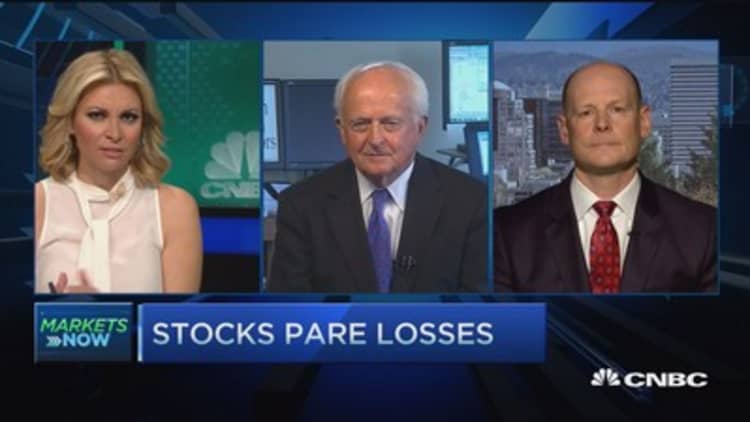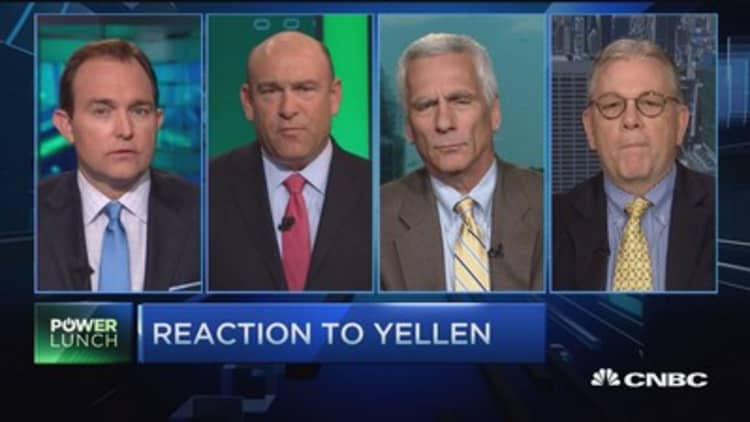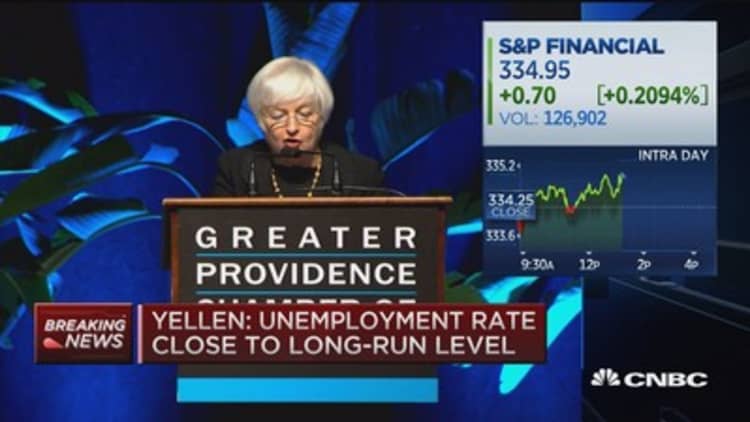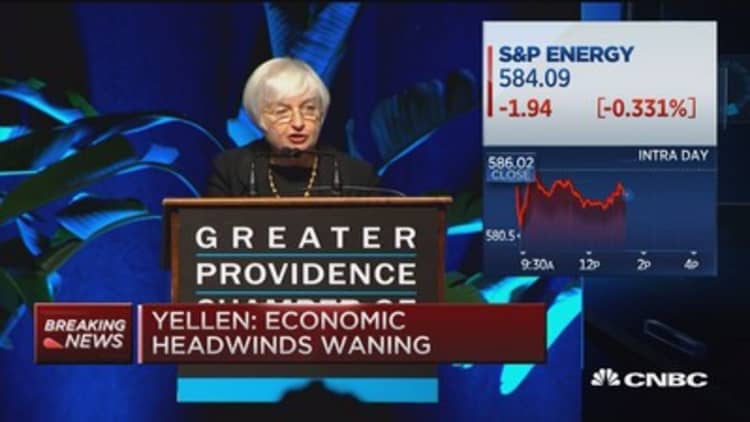



Economists and market watchers were mixed Friday about whether the Federal Reserve will raise interest rates in 2015, shortly after the central bank's chair, Janet Yellen, said an interest rate hike would be appropriate this year if the economy improves.
In a speech to the Greater Providence Chamber of Commerce in Rhode Island on Friday, Yellen said in order to hike rates, she'll need to see continued improvement in labor market conditions and she will have to be reasonably confident that inflation will move back to 2 percent over the medium term.
Money manager Hugh Johnson pointed out to CNBC's "Power Lunch" that while unemployment is improving, it's not where it should be, and inflation is also not where it should be.
"The only question is, are we going to get to employment conditions and inflation conditions that really would justify a move towards restraint or an increase in the fund rates by year-end," said Johnson, chairman and chief investment officer of Hugh Johnson Advisors, which manages more than $1 billion in discretionary assets.
"I would say, you know that's really uncertain. I'm not dead sure we're going to get there. So we might be 2016."
Read MoreYellen: Rate hike appropriate this year if economy improves
During her speech, Yellen said the labor market is "approaching full strength" and that unemployment should fall to 5 percent by the end of the year.
However, CNBC contributor Jared Bernstein pointed to two factors the Fed chair mentioned were important that he said are "signaling that the unemployment rate is actually downward biased right now."
Those factors are the elevated levels of part-time workers who would rather work full time, and the "bunch" of people sitting out of the job market who would come back if it tightened up, said Bernstein, a senior fellow at the Center on Budget and Policy Priorities and a former chief economist and economic policy advisor to Vice President Joe Biden, also on "Power Lunch."
That said, he thinks the Fed will "probably" raise rates this year if the trends continue.
Ward McCarthy, chief U.S. financial economist at Jeffries, believes rate hikes could come in December.
"The key to when the labor market is where it needs to be is when we start to get an acceleration of wage growth and it looks like we're on the threshold but we're not there yet," he said on the program.
Read More Street wanted more from Yellen, got same old
Yellen said once the Fed begins to raise rates, the pace will be gradual and it will take several years for rates to normalize.
Darin Richards, chief investment officer at AKT Wealth Advisors, said that slow rise back to normalcy is important for the economy. However, whether that begins in September or next year will not have a big impact on his investment thesis.
"When the Fed starts raising rates it's going to be because the economy is on very solid footing and I think that's actually going to be a good sign," he told "Power Lunch."
—CNBC's Everett Rosenfeld contributed to this report.



